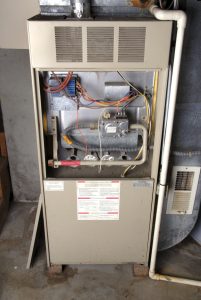There are a lot of guides and tutorials out there talking about the newest and greatest eco-friendly HVAC systems on the market, but a lot of those systems are just too expensive and too out of reach for most homeowners. In fact, you might have a gas or electric furnace that works perfectly fine and doesn’t need replacement yet, so how do you run it more effectively to save fuel or energy?
The question is simple: how can homeowners in Vineland, Deerfield, and Upper Deerfield, NJ live a more eco-conscious way while still operating their furnaces? We’ll break that info down for you below, but remember that prompt furnace repair in Cumberland County, NJ is a huge part of it. A furnace that’s in disrepair will often run less efficiently and more costly than a system that’s been taken care of.
So, let’s talk about how you can be a more responsible homeowner this winter.
Best Practices for the Average Homeowner
Sure, anyone with a few thousand dollars to burn can save money on their heating bill—but that’s not the average person. Many of our customers are regular people, living on a strict budget with homes that have specific heating systems that can’t easily be replaced.
So, how can you live within your means while still saving fuel or energy every month? Here are a few ways.
- Keep your bills and evaluate your efficiency. No, it’s not strange or obnoxious to keep your heating bills in a special place—it’s smart! Your heating bills will detail how much fuel or electricity your furnace used, which can let you know how efficiently it is working. If you’re noticing a trend, or a large spike during a month that wasn’t much colder, you might have caught a problem that needs to be fixed.
- Insulate your home, keeping windows and doors closed. Keep the heat inside! Any time you open a door or a window, you’re letting heat out. That’s precious heat that you pay for, and it could be wasted fuel that increases your carbon footprint.
- Use the thermostat responsibly. A smart thermostat can automatically detect when you’re out of the house and turn the temperature down to the 50s. This is a great way to save money on fuel or energy when you’re not using your heating system.
- Change the air filter. Changing the air filter every 1–3 months is a great way to save money on your HVAC bills, since it improves efficiency and eases the burden on your furnace.
- Be vigilant and invest in repairs. If you detect something wrong, make sure you get it fixed. A system in disrepair is going to run less efficiently or less effectively on average than one that’s been fixed.
- Schedule maintenance. Maintenance every year is key to having a powerful heating system that works with peak efficiency.
- Upgrade when the time comes. Eventually, when your furnace does reach the end of its lifespan, work with a qualified professional to receive tax credits, rebates, and other incentives for a high-efficiency system.

